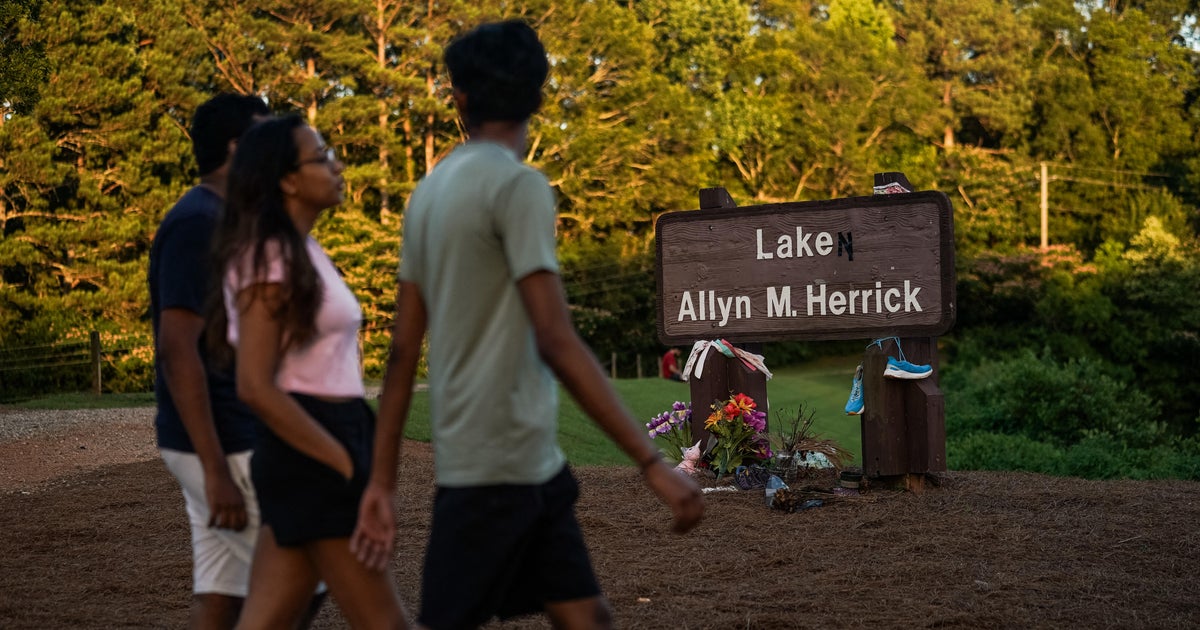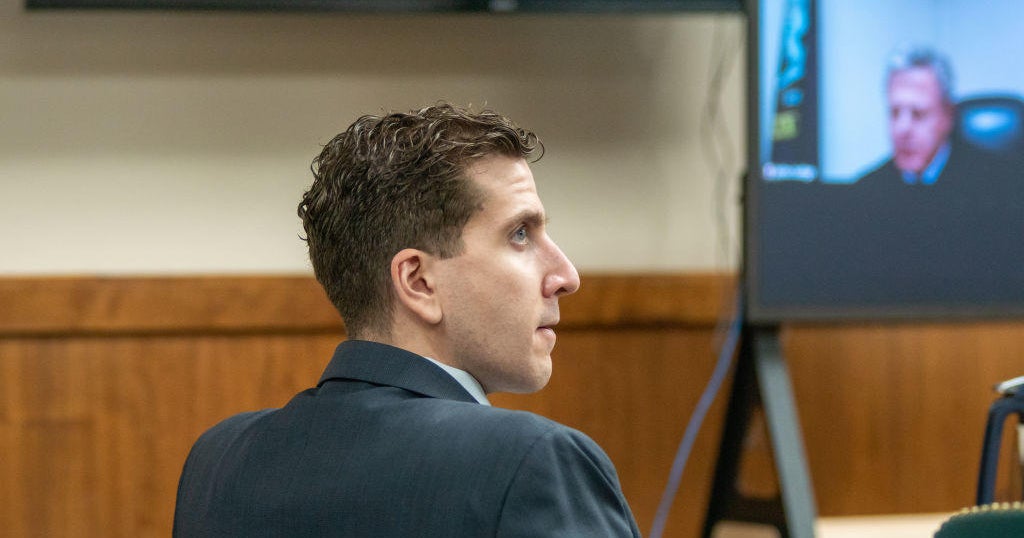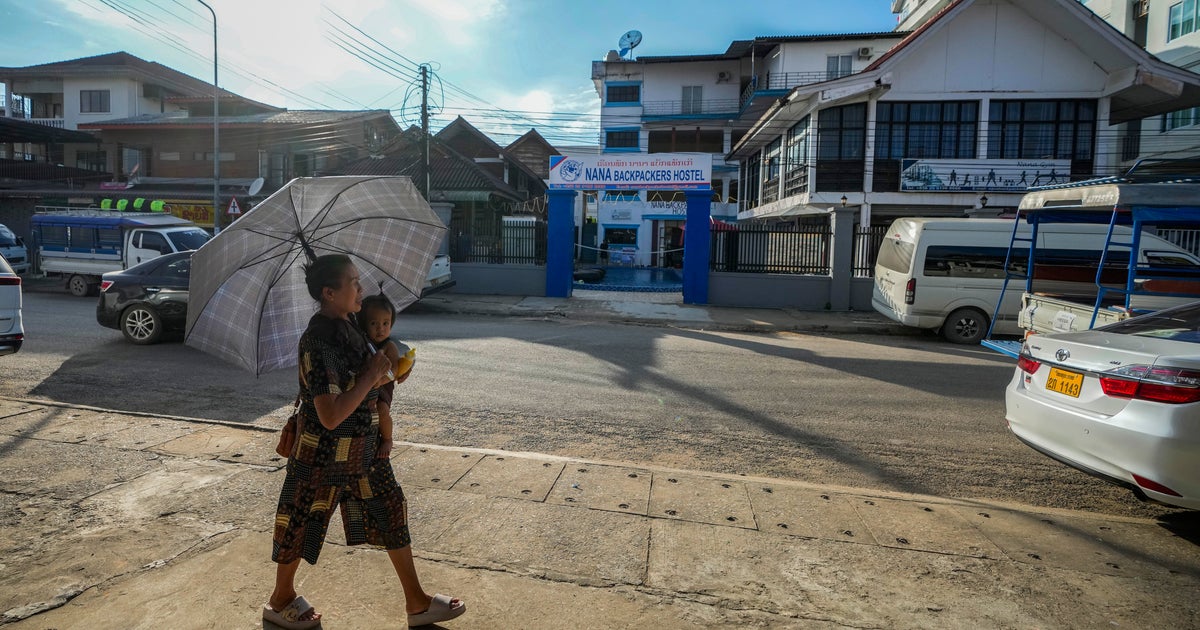Transcript: Dr. Scott Gottlieb on "Face the Nation," March 20, 2022
The following is a transcript of an interview with Dr. Scott Gottlieb that aired Sunday, March 20, 2022, on "Face the Nation."
MARGARET BRENNAN: We're joined now by former FDA commissioner Dr. Scott Gottlieb. He's also a Pfizer board member, and he joins us from Westport, Connecticut. Good morning to you, Doctor. I even tripped up on your name. My goodness, I haven't seen you in a few weeks, and now I just need to get your perspective on what BA.2 this new variant means. Should we be concerned about a wave?
DR. SCOTT GOTTLIEB: Well, look, I don't think we're going to see a big wave of infection, but we're going to see some uptick from where we are right now. Right now, we're at very low levels of infection. We have nine cases per 100,000 people per day. Those are levels that we haven't seen since last June. There are about 20,000 people thousand currently hospitalized. And I think we're going to continue to see low levels of infection through the summer. But before we get there, we're probably going to see some tick-up of infection like the Europeans are seeing right now, maybe not as pronounced. And there are indications that the U.K. is already peaking, but some increase in infections. And that's a result of BA.2, which is probably 30 to 50 percent more transmissible than- than the Omicron variant that became prevalent here. As well as the lifting of mitigation, people are going out more, they're interacting more and some declining immunity from people who are boosted a long time ago or infected a long time ago. We're relying on that immunity, that immunity isn't as pronounced right now, so we are going to see an increase in infection. I think this is going to be a real test of whether or not we're able to live some semblance of normalcy and not reach back to the kind of mitigation that we've relied on in the past. And I don't think we'll be doing that while still protecting the vulnerable. And so far right now, I don't know that we're taking all the steps we need to be taking to protect vulnerable people to weather this bump and potentially another surge heading into next fall.
MARGARET BRENNAN: You said if you were vaccinated a long time ago. Mr. Bourla, the CEO of Pfizer, was on this program last week and said immunity starts to wane four months after your injection. A lot of us are right there right now. How long do we wait to get a booster? You know, another dose hasn't been authorized for wide use yet.
GOTTLIEB: Yeah, look, the data that's coming out shows that the protection from the vaccine, particularly three doses of the vaccine, but even two doses of the vaccine is substantial and durable if you're talking about protection against severe disease and hospitalization. And there's been some recent studies really supporting this. But in terms of protection from symptomatic disease and from infection, that does start to wane more immediately because that's dependent upon circulating antibodies, which after a period of time start to decline and aren't as prominent in your blood. I think this is really a six month vaccine in terms of providing really meaningful protection against symptomatic disease and infection. And this is likely to become an annualized vaccine for the majority of Americans. I think for those who are vulnerable, you should think about getting a shot every six months while we're in a high-prevalent environment and in fact, the shots are authorized for that use. For people who are immunocompromised, there is authorization right now for a fourth booster.
MARGARET BRENNAN: Pfizer has applied for a booster for people 65 and over, Moderna more widely. So do generally healthy adults need to get this too or just the immunocompromised?
GOTTLIEB: Yeah, I think it also depends on what the environment is. If we're in a low-prevalent environment, as we're likely to be this summer, I think most Americans who had three doses of vaccine will have sufficient protection going through the summer. We don't, after all, get a flu vaccine in the summertime, even though the flu vaccine only affords about six months of protection, because the flu season only lasts about six months through the fall in the winter, so you don't worry about contracting a respiratory pathogen in the summertime. And I think the risk is going to be pretty low this summer. I think after we have this bump in infection, we're gonna get down to low levels. Heading into the fall, I suspect a lot of Americans will want to get another vaccine. You know, some people are going to call it a fourth booster. I think it's heading towards this vaccine becoming an annualized vaccine, at least for the foreseeable future, until we really understand the epidemiology of this disease and understand whether this coronavirus starts to recede into the background, like the four circulating strains of coronavirus that we've become accustomed to have.
MARGARET BRENNAN: But I mean, you've talked about this for so long that the risk of becoming this bifurcated society where it's those who can go out and those who are compromised or worried about infecting family members. I have small children under five who are not vaccinated, so I would put myself in that category. But now there's this. There's a cost because all the health restrictions are out, so you are choosing to isolate yourself if you are taking health restrictions. What is a health like the average person? What should they do should they still be wearing masks?
GOTTLIEB: Look, I think if you're vulnerable, if you're someone who is very vulnerable to this infection in a high prevalence and prevalence environment or in an environment, if you're going into a setting that's high risk, a confined space indoors, there are things you can do to protect yourself in that setting. One way masking does work even if everyone else isn't wearing a mask. If you're wearing a high quality mask, you're going to get a good degree of protection from that. A lot of people continue to wear masks. There's also a lot of therapeutics available now more than we had better tools than we had earlier in this pandemic. I think understanding how you can get access to those is important.
BRENNAN: Dr. Gottlieb, thank you for your time today. We'll be right back.



